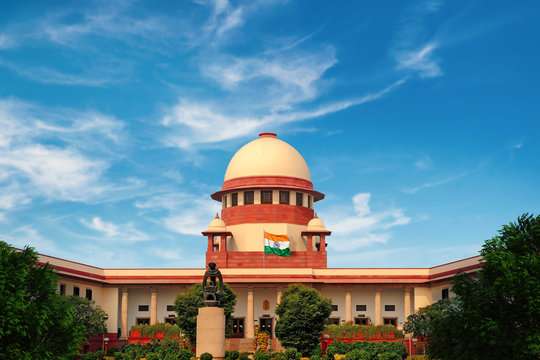The Union Ministry of Law and Justice on October 18, 2022, submitted before the Supreme Court that it cannot direct the Parliament to frame or enact any law, thus the Public Interest Litigations (PILs) filed before it seeking a Uniform Civil Code in the country must be dismissed as non-maintainable. The Court was listening to the PIL filed by the advocate Ashwini Upadhyay seeking uniformity in the personal laws regulating marriage divorce, maintenance, and alimony.
The statement of the Ministry said:
A writ of Mandamus cannot be issued to the legislature to enact a particular legislation. This is a matter of policy for the elected representatives of the people to decide and no direction in this regard can be issued by the Court. It is for the legislature to enact or not to enact a piece of legislation.
The ministry argued before the court that “the purpose behind Article 44 is to strengthen the object of ‘Secular Democratic Republic’ as enshrined in the Preamble of the Constitution. This provision is provided to effect integration of India by bringing communities on the common platform on matters which are at present governed by diverse personal laws”. “Thus, in view of the importance and sensitivity of the subject matter, in-depth study of various personal laws is required”, the Ministry said.
The Ministry further informed the Court that “it is conscious of the matter and that the 21st Law Commission undertook a detailed examination of the same by inviting representations from several stakeholders”. However, since the Commission’s term ended in August 2018, the matter will be placed before the 22nd Commission, the Ministry’s statement added.
“As and when the Report of Law Commission in the matter is received, the Government would examine the same in consultation with the various stakeholders involved in the matter”, the Ministry informed the Court.
Six PILs have been filed before the apex court asking to enact the UCC, which includes four PILs by Ashwini Upadhyay, one by Lubna Qureshi, and another by Doris Martin. “UCC has always been seen as a spectacle of religious appeasement, and while the Supreme Court or High Court cannot ask the Government to implement Article 44 of the Constitution but can direct the Centre to constitute a committee to prepare a draft of Uniform Civil Code”, the petitioners have submitted in the Court.
The Uniform Civil Code has been placed under Article 44 of the Constitution of India, which lists the Directive Principles of State Policy. UCC aims to introduce personal laws irrespective of religion, gender, or caste and governs personal matters like marriage, divorce, and adoption.














